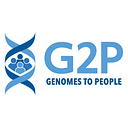Sharing, Caring, and the Complications of Sequencing a Baby’s Genome
When a newborn’s genome is sequenced, should some results be withheld?
Learn more about the BabySeq Project.
By Robert C. Green
If genome sequencing can warn us of future disease risks, allowing the opportunity for intervention before symptoms appear, it stands to reason that the earlier you obtain it, the more you will benefit. And if earlier is better, wouldn’t newborn genome sequencing make sense?
It very well might. A simple “heel stick” newborn genetic screening test, covering over 30 conditions, is already required by law in the U.S. and many other countries. Genome sequencing goes much further, searching for thousands of additional conditions and expanding options for early intervention. This could be especially important for childhood diseases, or any condition where preventive steps can begin at a young age.
Not all conditions fit that description, though. What happens if a newborn’s sequencing results include a risk variant for an adult-onset condition? What does it mean for that child, and for other adults in that child’s family — some of whom might unknowingly share the same variant?
We have some complications to work out before newborn genome sequencing becomes common practice. The BabySeq Project, a randomized clinical trial with more than 300 participating families (parents with newborn babies), is working on these questions, examining how to integrate genomics safely and effectively into pediatric medicine.
A recent paper in Pediatrics highlights a difficult case we encountered in the BabySeq Project in which an actionable adult-onset condition was detected in a newborn’s genome sequencing. The lab team discovered that a newborn in the study carried a pathogenic BRCA2 variant unequivocally associated with a significantly increased risk of breast and ovarian cancer in women and some increased risk of other cancers in both men and women. The baby, who had been placed in the cardiac ICU with underlying medical problems that genome sequencing did not explain, passed away.
The study team realized that one of the baby’s parents was carrying the variant without knowing. And the team faced the decision of whether — and if so, how — to share that information with the parents.
The original protocol did not help us. In designing the BabySeq Project, we had had concerns about including adult-onset conditions and had decided to focus on potential benefits to the child only. The FDA, with some oversight of our proposed study, also had concerns about sharing adult-onset conditions, and in the original protocol, we had agreed to return only pediatric-onset conditions to the participating families.
Yet when this newborn’s results included the BRCA2 variant, we felt the family should have the option to receive the result. The child’s parents had not reported an elevated family risk of cancer, so we had reason to believe that if the mother also carried the BRCA2 variant, she may not have known it. Providing her this information could save her life.
We initiated a series of conversations, then formal communications, with our Institutional Review Board, and later with the FDA, both of whom agreed that the information should not be withheld. Next, without referring to any particular findings in their family, we gave the parents the option to receive their child’s results for adult-onset conditions, and both said they would like to receive them. Study geneticists and their family doctor shared the results in person. Upon hearing the BRCA2 result, the mother realized she had several more distant relatives with a history of breast or ovarian cancer. She scheduled a follow-up at a cancer genetics clinic, where she discovered that she carried the BRCA2 variant as well.
Ethical standards in newborn screening, and in pediatrics more generally, revolve around considering the child’s best interest. As we had previously anticipated, when it comes to revealing genetic variants that predict adult-onset conditions, the “best interest” standard reminds us to consider the child’s autonomy, allowing them to make their own decisions as adults about what they do and don’t want to know. However, when an adult-onset variant is likely to have been inherited from a parent, and when learning that variant may save a parent’s life — as is very much the case with BRCA2 — it is self-evident that providing information that could save a parent’s life is also in the child’s best interest.
Robert C. Green, M.D., M.P.H., is a medical geneticist and physician-scientist who directs the G2P Research Program in translational genomics and health outcomes in the Division of Genetics at Brigham and Women’s Hospital, the Broad Institute and Harvard Medical School. Follow him on Twitter at @RobertCGreen.
